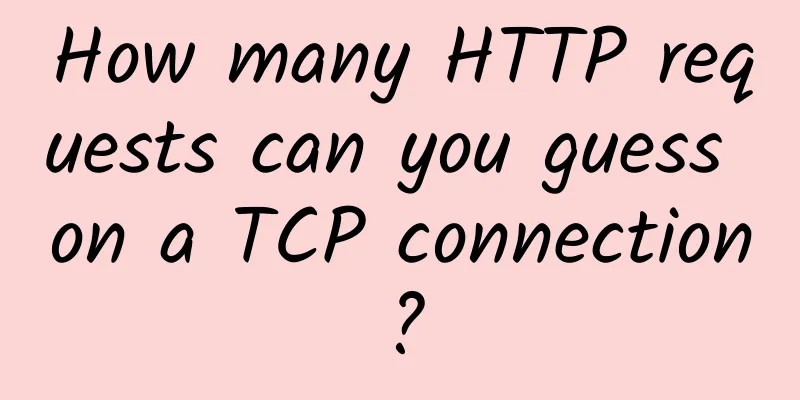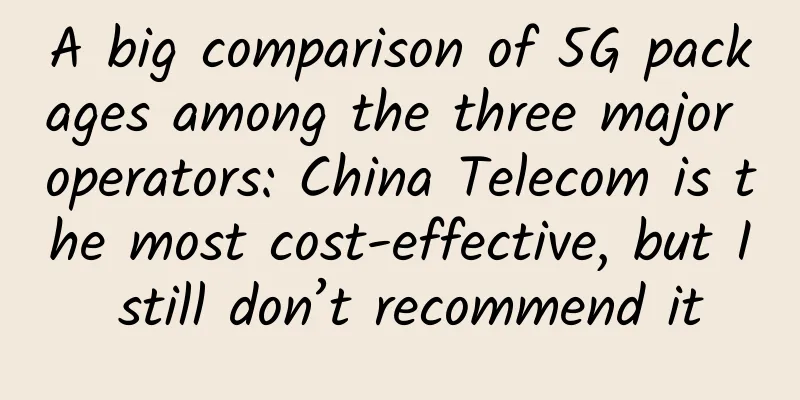Why Microsoft's acquisition of Nuance is a big deal
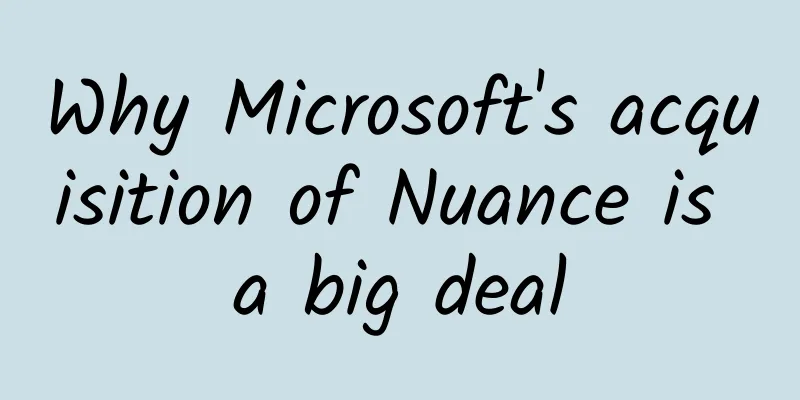
|
Microsoft recently announced that it would acquire Nuance, a company that provides speech recognition and artificial intelligence conversation services, for a huge sum of $19.7 billion. Nuance is well known for its deep learning speech transcription service, which is popular in the healthcare field. The two companies had already worked closely together before the acquisition. Nuance built some products on Microsoft's Azure cloud platform, and Microsoft used Nuance's Dragon service in its cloud-based healthcare solution launched last year during the coronavirus pandemic. This is Microsoft's largest acquisition since it bought LinkedIn for $26 billion, and it fully illustrates Microsoft's development strategy in artificial intelligence. Artificial Intelligence in HealthcareThe main focus in this acquisition announcement is AI in the healthcare field, as Nuance is a leading provider of AI services in this area. Microsoft CEO Satya Nadella tweeted: "Nuance provides AI at the point of delivery in healthcare and is a pioneer in real-world applications of AI in the enterprise. AI is one of the top technology priorities and healthcare is its most pressing application. Together with Nuance, we will put advanced AI solutions in the hands of professionals to make better decisions & build more meaningful connections." Nadella said that Nuance's AI services are consistent with the limitations and capabilities of deep learning algorithms. Deep learning may not be very good at solving general problems or causal reasoning, but it can be very effective when completing specific tasks. Nuance chose to take an application (speech transcription) to solve and focus its attention on the healthcare field (clinical settings). This allows the company to train machine learning models on large amounts of data in this specific field and ensure that its AI solutions have excellent performance and reliability. Nuance has a range of AI products tailored for clinical settings, including a virtual assistant for electronic health records, a multi-party conversation transcription service, and a deep learning language model that converts clinical conversations into structured annotations for integration into health records. Documentation is one of the main pain points for hospitals and one of the minimum standards for adopting artificial intelligence in the healthcare industry. Nuance's artificial intelligence technology can help medical staff save time and improve the patient experience. According to the acquisition announcement released by Microsoft, Nuance's artificial intelligence solutions are currently used by more than 55% of clinicians and more than 75% of radiology staff in the United States, and are used in 77% of hospitals in the United States. The company's cloud computing service revenue also increased by 37% year-on-year, although this may be due to changes caused by the epidemic. “This acquisition will double the size of Microsoft’s total addressable market (TAM) in the healthcare provider space to $500 billion,” Microsoft announced. Microsoft's Position in HealthcareNuance's clout in the health-care market suggests Microsoft will recoup its $19.7 billion investment in a relatively short period of time, but entering the market won't be easy. Other big tech companies, such as Apple and Google, already had health-care plans in place earlier than Microsoft. But Microsoft is particularly well-positioned to capitalize on the new acquisition because of its novel business model. Google and Apple are primarily consumer-focused companies. Microsoft, on the other hand, gets most of its revenue from enterprise customers, and its Office suite and its collaboration tools are already used in many hospitals, even before the announcement of this healthcare solution. That’s why Microsoft has great market penetration. And, if you use its cloud healthcare solutions, you can see that Microsoft is integrating its health solutions into the tools that many healthcare workers are already accustomed to using (such as Outlook, Teams, Office, and messaging applications). The real advantage is the infrastructure that Microsoft has built, the integration of all these services with clinical applications, and excellent data engineering, which makes it possible for users to deploy machine learning models and data analysis tools across various data sources. "This is the perfect architecture on which Microsoft can build artificial intelligence systems, where it can create machine learning models that provide ways to improve existing products and build new ones. This acquisition will allow Microsoft to accelerate business growth by leveraging Nuance's influence in the healthcare sector. Nuance's customers are now also Microsoft's customers." Expanding beyond healthcarePrior to the acquisition, Microsoft had already used Nuance’s Dragon AI technology in its healthcare solutions to record virtual visits, transcribe notes, and integrate the information into patients’ health records. Now, with the acquisition of Nuance, Microsoft will also gain full access to its technology and will be able to expand its new AI transcription capabilities beyond the healthcare sector. "In addition to healthcare, Nuance provides AI expertise and customer engagement solutions such as interactive voice response (IVR), virtual assistants, and digital and biometric solutions to organizations across industries around the world," Microsoft said in a blog post. Nuance's technology will also be integrated into other Microsoft enterprise products. Another thing worth watching is how Microsoft will combine Nuance's AI with other technologies it is experimenting with. For example, Microsoft already has an exclusive license to OpenAI's GPT-3 language model, and Nuance's transcription technology and GPT-3 could be a powerful combination for enterprises. Microsoft's AI strategyMicrosoft may not be able to predict which startup will succeed in five years, especially in a field as uncertain as artificial intelligence. But the company is counting on one constant that will always be needed in the field of artificial intelligence: computing power. Microsoft uses its massive Azure platform to connect with startups, often providing them with subsidized access to cloud computing machine learning tools. The company also invests heavily in Azure credits to ensure that the companies it invests in will be locked into its platform. This allows Microsoft to both help these companies grow and learn from them. When these companies' technologies and business models mature, its investments will pay off. Microsoft's investment in self-driving car startup Cruise has made Microsoft Azure the cloud platform of choice for Cruise and its owner General Motors. Microsoft's success lies in keeping a distance from startups developing technology. Rather than making big acquisitions, Microsoft has cast a wide net by making smaller investments in several companies. The acquisition gives Microsoft a good foothold in many innovative fields. As these fields mature, Microsoft gradually forms partnerships with the more successful startups. When the time is right, it will acquire these companies to give them the best leverage in the market. Seeing the evolution of this relationship between Microsoft and Nuance as Microsoft evolves from cloud provider to partner to owner will tell you more about Microsoft's AI strategy, which is smart because the AI industry is changing fast. Startups in the AI space are making great strides in creating applications that solve real-world problems, but there are still many things that haven't been figured out yet. As new technologies and companies continue to develop, Microsoft will be watching closely and choosing to acquire leading startups in various industries. |
<<: China has built more than 790,000 5G base stations, with 260 million terminal connections
Recommend
DigitalVirt: 95 yuan/year-1GB/10GB NVMe/1TB@200Mbps/Hong Kong International Line
DigitalVirt recently offered a 50% discount coupo...
China Mobile's elimination of fake 5G users may be the reason for the slowdown in 5G user growth
Due to pressure from all sides, the three major o...
Why Wi-Fi will not disappear but become more important in the 5G era?
This article is reproduced from Leiphone.com. If ...
Regarding the 6G satellite, I am "confused"
[[351012]] On November 6, a satellite named "...
Huawei releases next-generation O&M architecture for autonomous network operation, expected to save operators 25% of O&M costs
On April 17, 2019, at HAS2019, Huawei released th...
IKIHOST: $4/month-4GB/40G NVMe/1Gbps unlimited traffic/Los Angeles data center
The tribe shared information about IKIHOST last y...
The number of 5G package users exceeds 600 million, and the profits of the three major operators have skyrocketed. Is 5G starting to make money?
In June 2019, the four major operators obtained 5...
HostKvm: 30% off Hong Kong VPS, 4.9/month KVM-1G memory/10G hard disk/50M bandwidth
HostKvm is a foreign VPS service provider founded...
HTTPS - Why TLS 1.3 provides better performance and security?
TLS v1.2 was released in August 2008. Ten years l...
The momentum of large-scale commercial use of NB-IoT is unstoppable
The Internet of Things is the only way to the int...
TmhHost adds dual ISP US home broadband VPS native IP/AS9929 backhaul monthly payment starts from 50 yuan
This month, TmhHost added dual ISP home broadband...
AI and IoT are still popular, but they still rely on big data analysis
Today's big data analysis market is completel...
Flash is dead, and its first victim appears: the router can no longer log in
Flash was once the memory of a generation, but it...
Four trends to watch out for in 2018
Even with all the coffee or energy drinks in the ...
RabbitMQ communication model work model
Hello everyone, I am Zhibeijun. Today, I will lea...

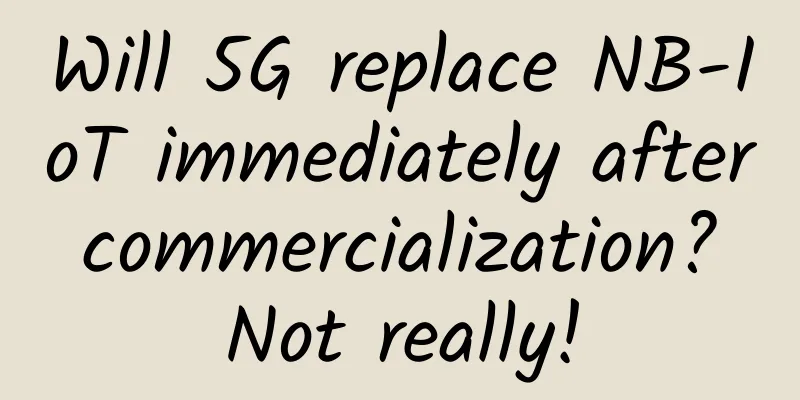
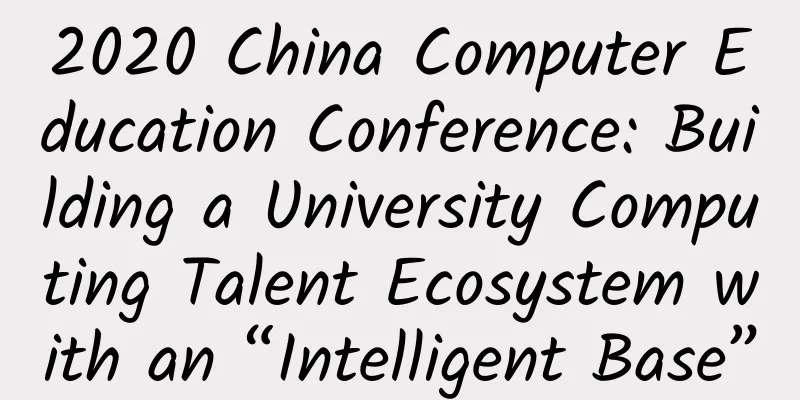


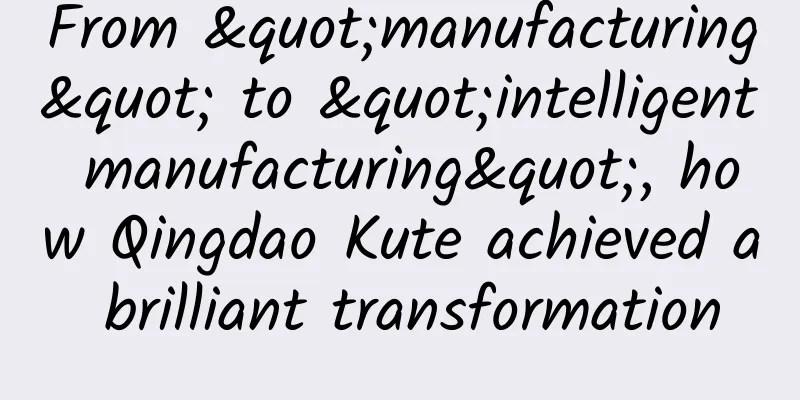

![[Black Friday] HawkHost: 35% off on virtual hosts, 30% off on reseller hosts/cloud servers, data centers in Hong Kong/Los Angeles, etc.](/upload/images/67cac019c2186.webp)
